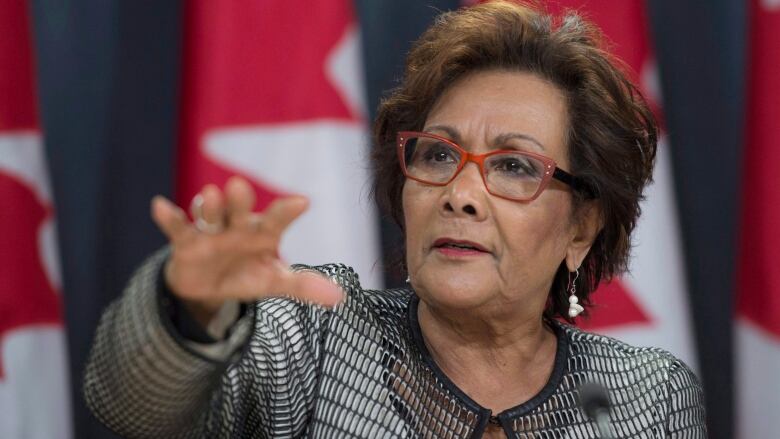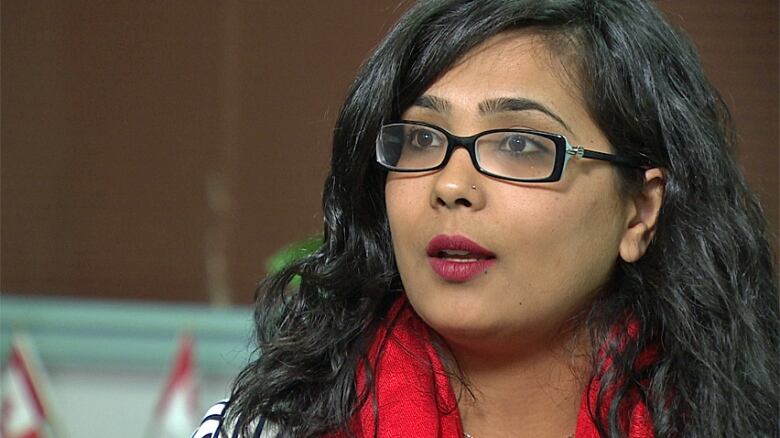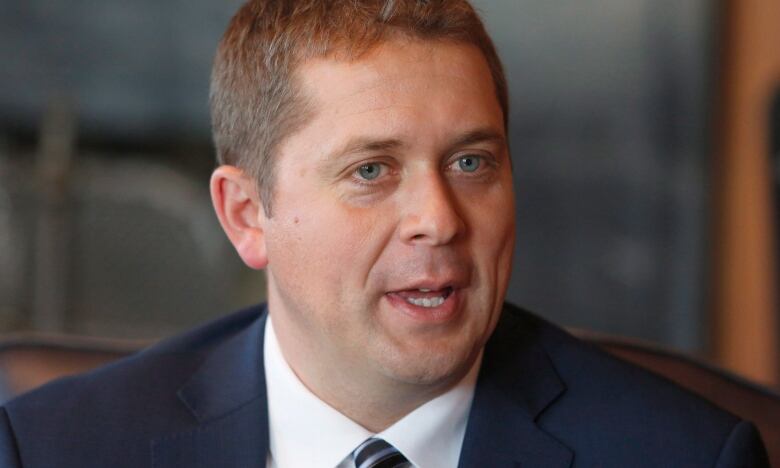Iqra Khalid urges fellow MPs to take unified approach in Islamophobia study
Term's meaning and scope inflamed debate earlier this year

The MP who touched off a fiery debate across Canada with a motion on Islamophobia, is urging parliamentarians to take a unified approach to find ways to combat it.
Liberal MP Iqra Khalid says she hopes the House of Commons heritage committee finds the right experts and data to complete its study on combating systematic racial and religious discrimination against all minorities.
The study was mandated as part of the motion Khalid introduced in the House of Commons last December and which passed last spring.
- Conservatives wrestle over Liberal MP's anti-Islamophobia motion
- MP behind anti-Islamophobia motion reads out hate mail
- House of Commons passes anti-Islamophobia motion
The debate around the motion set off showdowns between right and left wing groups on Parliament Hill and beyond, and saw the Liberal MP who sponsored it receive thousands of hate-laced messages and death threats.But she isn't discussing those in her testimony before the committee, saying she'd rather the body focus on moving forward.
Liberal MP Hedy Fry, who chairs the committee, said all parties worked together to draw up the witness list and are intent on learning and listening.
"I don't think there's going to be any kind of nastiness," she said before the meeting.

Dynamic shifting
The issue is among the first MPs are dealingwith after a summer that included a violent protest in Virginia between white nationalists and their opponents that left one dead and injured nearly 20 others, as well as a series of protests and counter protests between similar groups in Canada.
People have long been concerned with the global climate for minorities, Fry said, but things are shifting.
"All that we see with the things that have happened in the United States and Canada and around the world is that it's becoming a little more acute," Fry said.
"That tells us that doing the study is important."
The motion, known as M-103, stems from a petition circulating in the summer of 2016 calling on the House of Commons to join signatories in recognizing "that extremist individuals do not represent the religion of Islam, and in condemning all forms of Islamophobia."
More than 70,000 people had signed when NDP Leader Tom Mulcair introduced his own motion for the House of Commons to back them.
His first attempt failed. A handful of Tories objected. But a few weeks later, his motion was passed.
It attracted zero attention.
Quebec attack reframed
On Dec. 1, Liberal MP Iqra Khalid gave notice of her motion.
Hers called on MPs to recognize something had to be done to "quell the increasing public climate of hate and fear," and to that end, the House ought to condemn Islamophobia and all forms of systemic racism and religious discrimination.
Then, it called on the heritage committee to come up with a "whole of government" approach to reducing or eliminating it in Canada, as well as to collect more information on hate crime reports.

The petition itself arrived in the House of Commons a couple of days later. The Liberal government's response came Jan. 30, saying that they condemned Islamophobia.
Their response had likely already been drafted when, hours earlier, a gunman stormed into a mosque in Quebec City, killing six people and injuring over a dozen others.
The motion suddenly took on new political life.
Two weeks later, Heritage Minister Melanie Joly announced it had the full support of the Liberal government.
Unclear meaning
Even in their own counter motion, the Conservatives acknowledged the incident.
But their efforts to further broaden the motion by removing the word Islamophobia failed, with the Liberals accusing them of watering down Khalid's intent and the Tories arguing one specific faith ought not to be singled out.
The term "Islamophobia" has become the lightning rod.
One noted critic of it is scheduled to appear at committee this week: Tarek Fatah, the founder of the Muslim Canadian Congress.
His concerns include a lack of a definition for the phrase and in turn, what it means for those who seek to challenge Islamic fundamentalists.
A perception that support for the motion equates to support for Islamic religious law was on display last week when a woman confronted NDP leadership candidate Jagmeet Singh over his position on both.
Others have in turn interpreted the motion as running the risk of placing a chill on free speech that's one of the reasons Conservative Leader Andrew Scheer voted against.
It was a decision parroted by most of his competitors during the leadership race, though many struggled to articulate exactly why, drowned out by conservative news outlet Rebel Media which was aggressive in its opposition.
But in the wake of the Virginia protests, many Conservatives including Scheer have cut ties with the Rebel.
David Anderson, the Conservative MP expected to be quarterbacking the effort at committee, did not return a call for comment on what the party wants to see from the study.
For her part, Khalid has called claims her motion will lead to the suppression of free speech or the emergence of Shariah law "outrageous."












_(720p).jpg)


 OFFICIAL HD MUSIC VIDEO.jpg)
.jpg)



























































































